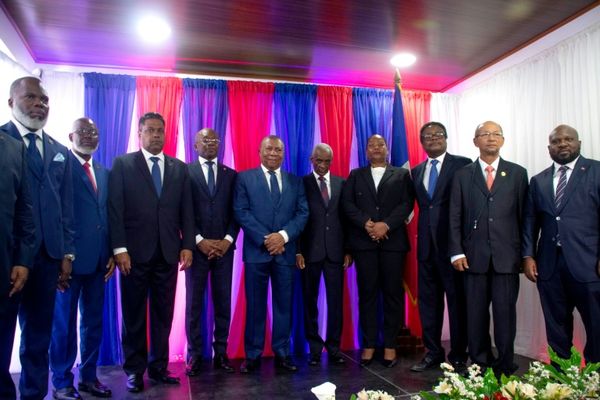
Clearly, Peter Dutton isn’t going to turn the Liberals into the “party of the worker” in any meaningful way any time soon. His embrace of the big business line on wages growth (less of it) and industrial relations (reversing Labor’s reforms that have made the playing field slightly less tilted against workers) guarantees that. Dutton might insist he’s now cut loose from big business CEOs — the ones he urges to lobby for industrial relations reforms — but it doesn’t involve actually helping workers. Doing that simply isn’t in the DNA of the Liberals.
But is there a way to embrace workers that is in the DNA of the Liberals?
One is the opportunity Anthony Albanese has opened up with his eager dismissal of break-up powers for supermarkets — something the prime minister deems shameless Stalinism. When the Greens urged such powers and the Nationals expressed interest, Dutton rather stiffly responded that “it is a principle of our party not to look to the Greens for leadership on how to manage the economy.” Within days he — or more accurately his colleagues — realised that was a missed opportunity, and Dutton publicly charged current Nationals leader David Littleproud and shadow treasurer Angus “the invisible man” Taylor with developing “big stick” powers to use against Coles and Woolworths.
Dutton later clarified that the powers would likely be in relation to property acquisition by the two giants, but there’s clearly a constituency among his MPs, and certainly among the Nationals and LNP members, to break the power of the two companies. It’s enough to put the wind up the Financial Review which today warned Dutton against “dabbling with this populist slippery slope” (sic — who writes like that?).
The alarm at the AFR is a signal that Dutton, or at least his colleagues, are on the right track. And far from limiting some form of break-up power to supermarkets in order not to scare business in the wider economy, the Liberals should think hard about going where Labor refuses to go and embracing a general divestiture power — possibly along the lines of the European Union power which is limited to circumstances where large corporations abuse their market power, if not as wide-ranging a power as the US laws.
While it’s Labor that has made the running on competition with its Treasury taskforce, the Liberals are supposed to be the party of competition. But much like Labor, the Liberals have spent most of the past 20 years implementing and then maintaining a form of neoliberal economic management that has allowed large corporations to curb competition. In this regard, gobsmacking as it is to have to say, it is the Nationals who have been economically purer than the Liberals in their advocacy of competition in relation to supermarkets and banking.
A truly liberal party would elevate competition as its primary goal in its economic management and set about reintroducing it across the many Australian industries that are characterised by oligopolies and abuse of market power. While that would go against the Liberals’ history of acting as the puppets of their big business donors, it would provide some substance to being a party of workers, and reduce one of the key causes of diminishing living standards for Australians.
There’s another way in which Dutton can help make the Liberals more like a party of workers. It’s also long-term, like enabling greater competition. Currently the Liberals don’t resemble the Australian workforce in any way, shape or form. Fewer than 25% of Liberal MPs are women; around 48% of the workforce is female. Just five Liberal MPs were born overseas compared to nearly 30% of the Australian population and a much higher proportion of the workforce; only 20% of Liberal MPs have non-English speaking ancestry. Nearly half come from backgrounds in politics as former staffers, rather than the real world of employment (in Labor that figure is even higher). Again, if the Liberals are the party of competition, why isn’t this reflected in a much greater diversity of Liberal MPs?
It’s hard to be a party of people whose life experience is entirely alien to you. Currently, the Liberals claiming to be a party of the worker is more an act of noblesse oblige rather than genuine representation. But looking more like Australians, and less like happy hour at the yacht club, might be more effective at convincing voters.
Do the Liberals have any shot of becoming the party of the worker? And does Labor need to step up in this arena too? Let us know your thoughts by writing to letters@crikey.com.au. Please include your full name to be considered for publication. We reserve the right to edit for length and clarity.







